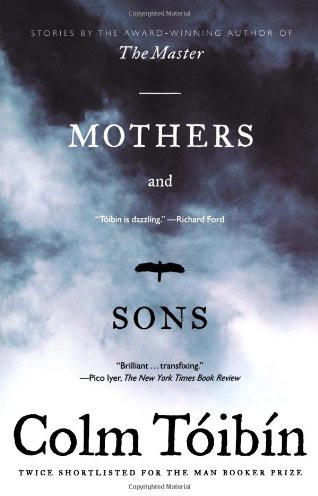
Mothers and Sons PDF
Preview Mothers and Sons
The nine stories in Mothers and Sons examine in depth some of the ways that the bond that is forged--or not--between mothers and their sons is altered, re-formed, or broken forever. In The Master, his fictionalized life of Henry James, Toíbín made the reader see and understand the writer more fully than ever before. Similarly, these new stories look at relationships between fully formed adults and, with a few deft strokes, make clear what their mutual history has brought them to. In most cases, they must deal with loss, while trying to grasp the complexities of that sometimes precarious balance between a mother and her son.
In the first story, "The Use of Reason," a lifelong burglar is nearly brought down by his mother, who talks too much when she drinks in her local pub. In "A Song," Noel, on the town with a group of his musician friends, ends up in the same bar as his estranged mother, who is asked to sing. She sings an Irish ballad about love and treachery and he is convinced that she is singing directly to him. In "A Priest in the Family," Molly's son Frank is accused of abuse, but no one has the courage to tell her until it is almost time for the trial. Her reaction is not entirely predictable. "Three Friends" takes place after a young man attends his mother's funeral. He joins his friends for a night of carousing and drugs ending with a late-night swim, where he is emboldened to make an overt sexual pass at one of his buddies, with interesting results. The final story, "A Long Winter," is set in Spain in a remote village. Miquel's mother drinks. Everyone knows it but Miquel. His father pours out her supply of booze and she leaves the house. So far it's a simple story. It doesn't stay that way. Each of these stories has its own gravitas, its own sadness, and that laser-beam of insight that is Toíbín's trademark. --Valerie Ryan
From Publishers WeeklyNine stories from the author of The Master, The Blackwater Lightship and three other novels explore what happens when mothers and sons confront one another as adults. The sons include a middle-aged petty criminal, a young alienated pub musician and a regular guy whose drug-fueled mourning takes him into new sexual territory. The mothers include a widow who married above her class, a woman whose son's depression hangs over her and her husband's lives and a woman whose son is a priest being charged with abuse. In "The Name of the Game," the widowed Nancy Sheridan finds herself saddled with three children and a debt-ridden supermarket. In "Famous Blue Raincoat," former–folk-rock sensation-turned-smalltime-photographer Lisa is distressed by her son Luke's interest in her band, but refuses to tread on his curiousity, which forces her to reconfront the band's painful end. Longing, frustrated expectations and an offhandedly gorgeous Ireland run steadily throughout—except in the concluding, near-novella-length "A Long Winter," set in a Spanish village, and featuring Miguel, his younger brother, Jordi, and their mother, whose drinking may not be the only secret Miguel discovers during preparations for Jordi's departure for his military service. Wistful, touching and complex, these stories form a panoramic portrait of loss. (Jan.)
Copyright © Reed Business Information, a division of Reed Elsevier Inc. All rights reserved.
